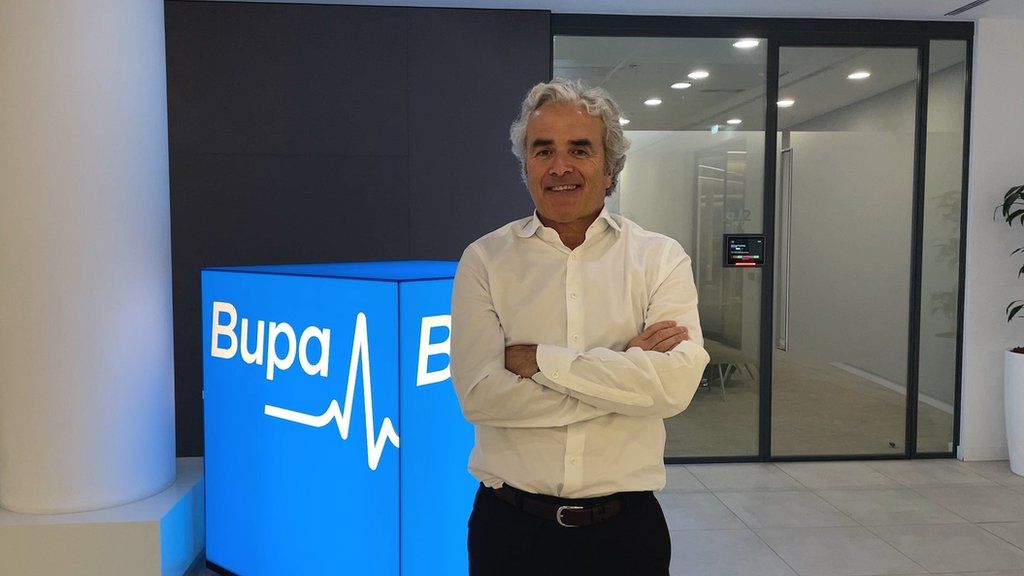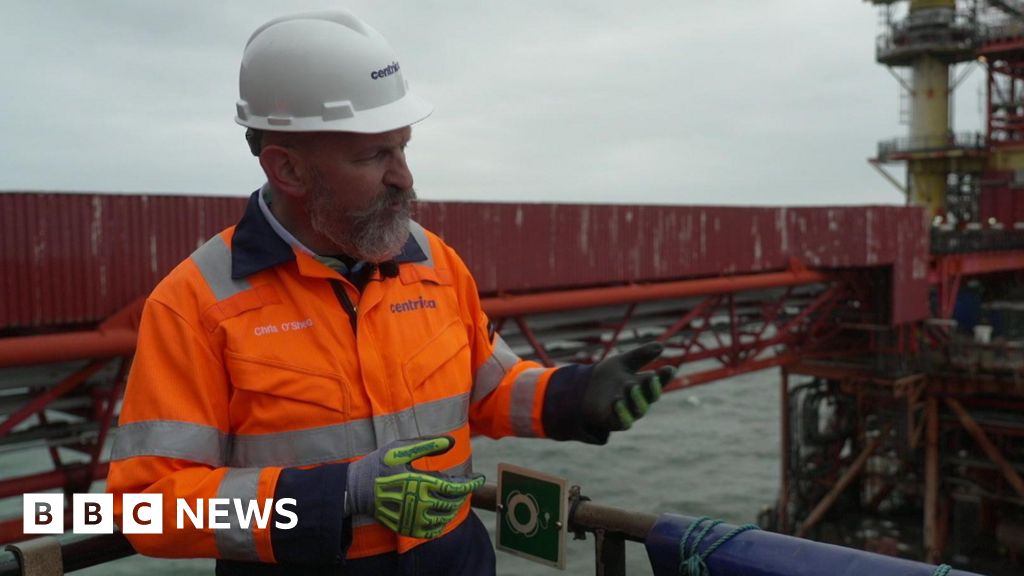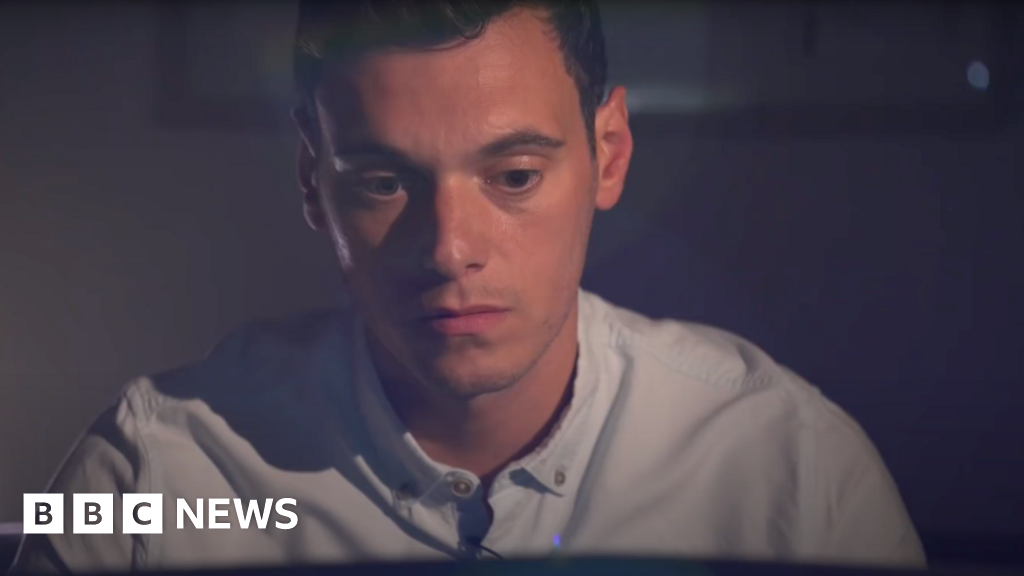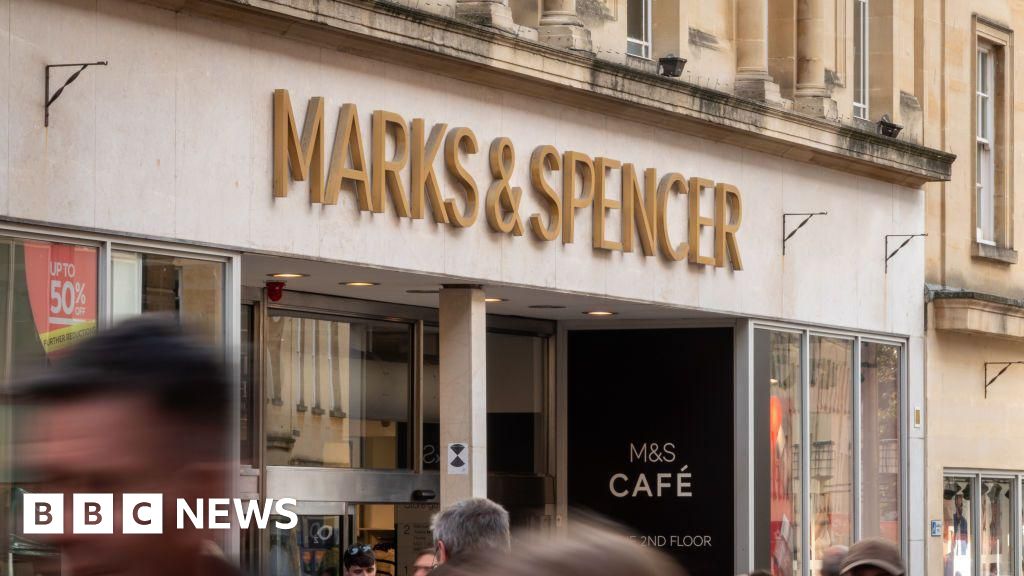ARTICLE AD BOX

Iñaki Ereño became CEO of Bupa in the middle of the pandemic
By Dougal Shaw
Business reporter, BBC News
Governments and healthcare bodies around the world have not learnt the lessons from Covid-19 and are not ready for another pandemic, according to the boss of private healthcare firm Bupa.
"We might face [another pandemic] soon," Iñaki Ereño said.
Hospitals must be ready to treat infected and non-infected people separately, Mr Ereño told the BBC.
In the UK the unprecedented number of hospital admissions caused by Covid-19 put the NHS under severe strain.
"The main question is: have we all [around the world] learned a lot, so next time we are ready? My belief is that is not the case," Mr Ereño said.
Countries need to consider how to minimise disruption to routine healthcare in any future pandemic, he believes.
"That is something that cannot happen again. We cannot stop the normal delivery of healthcare to people that need us," says Mr Ereño, pointing to pregnant women and cancer patients.
"The planning was not good, we cannot empty the hospitals and the clinics just for [a disease like] Covid, and allow people who were going through very severe episodes to stay at home."
Bupa offers private healthcare insurance to 24 million customers globally. It has 82,000 employees and had a turnover of £14bn last year.
It also runs its own clinics and hospitals, such as the Cromwell Hospital in London.
In some countries like Spain its hospitals were used for the treatment of Covid patients. More than half of Spanish hospitals are privately run.
Mr Ereño believes hospitals need to be ready to be segregated, or alternatively, separate hospitals could be designated for just treating infected people in a future pandemic.
Image source, Bupa
Image caption,Mr Ereño says hospitals must be ready to treat infectious people separately
Making sure hospitals in the UK are better prepared for a future pandemic is a good idea but may be hard to implement, says Paul Elkington, professor of respiratory medicine at Southampton University.
"Another pandemic is inevitable," he says, "but since Covid-19 the NHS has been hit by a sequence of challenges including staff striking across the sector, the Ukraine war creating supply chain disruption and high energy costs. With all these day-to-day issues it's very hard for NHS managers to focus on the next pandemic."
He says investment would be needed to modify buildings to have things like "clean entrances" for non-infectious people.
While private healthcare providers stepped in during the pandemic to help clear non-urgent care waiting lists, this is not ultimately sustainable, says Prof Elkington.
Mr Ereño also questioned whether countries had enough personal protective equipment (PPE) in stock.
"Do we have already all the protective equipment [we need in every country] ready just in case there is another pandemic? My guess is that not in every place. It is not happening as it should be.
"But we have the protective equipment we need for our people [in Bupa]."
Image source, Getty Images
Image caption,Hospitals around the world had to rush to order in face masks and other PPE back in 2020
The British Medical Association (BMA) released a report last year that was critical of PPE preparedness in the NHS prior to the pandemic.
Prof David Strain, chair of the BMA board of science, says that more needs to be learned.
"Large stockpiles alone aren't enough: the PPE we have must be fit for use. The medical workforce is diverse, which means we need PPE for different face and body shapes, varying hair textures, head coverings, and facial hair. This was a failing at the outset of the pandemic and still hasn't been addressed for those NHS staff dealing with Covid today."
A Department of Health and Social Care spokesperson said: "We are committed to learning lessons from the pandemic and have already concluded a review of emergency preparedness measures, which includes PPE, that need to be available in the event of a future pandemic.
"This is already making a difference, helping to ensure our future hospitals can adapt to changing health needs as part of our New Hospital Programme."
An independent public inquiry into the Covid-19 pandemic was set up in the UK last year, chaired by Baroness Heather Hallett. Its report will include advice on what lessons can be learned.
You can follow business reporter Dougal Shaw on Twitter

 2 years ago
49
2 years ago
49








 English (US) ·
English (US) ·